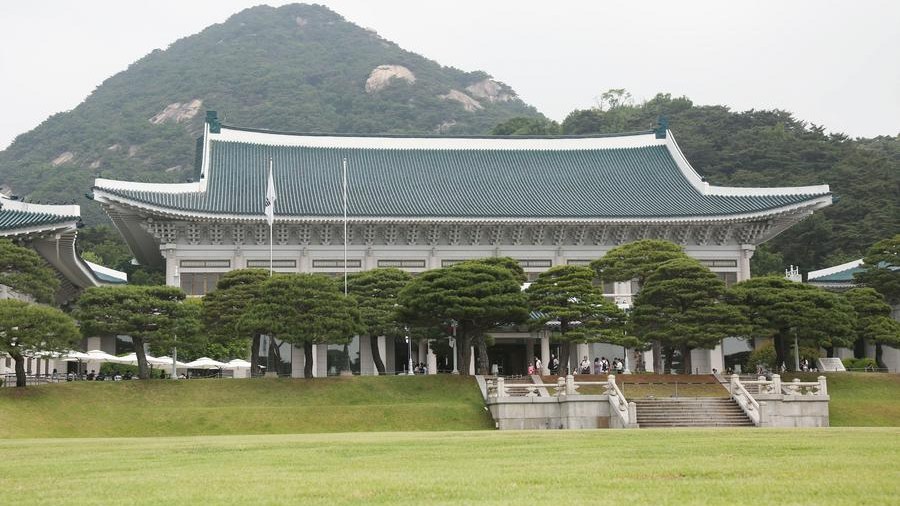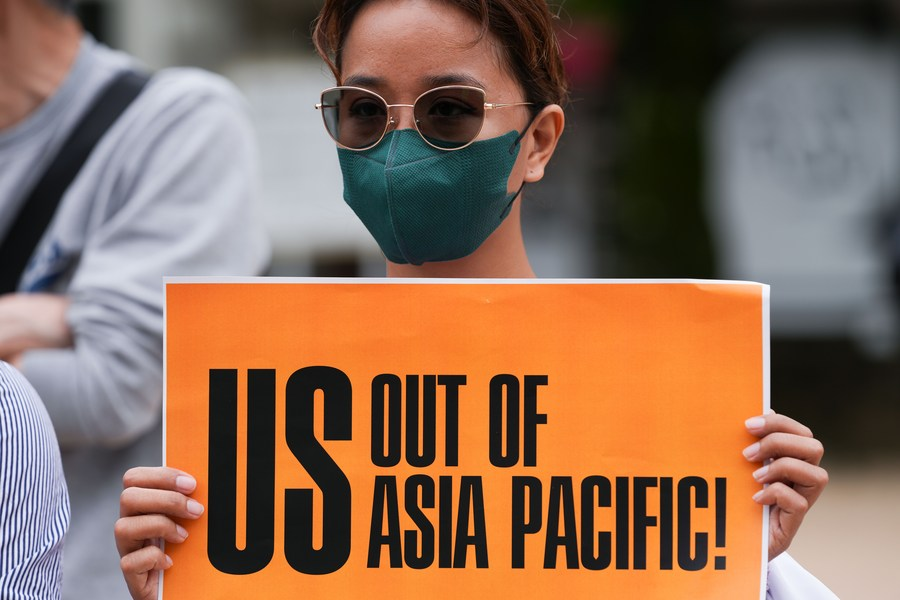
People visit Cheong Wa Dae in Seoul, South Korea, May 24, 2024. [Photo/Xinhua]
By Yan Zeyang
The ninth China-Japan-Republic of Korea (ROK) Leaders' Summit, opening in Seoul on May 26, marks the first such trilateral meeting in over four years. Although cooperation among the three countries still faces many challenges, if the three can work together, it will undoubtedly promote regional peace and prosperity.
Why trilateral cooperation is crucial
The cooperation started in 1999 and is an important part of East Asian cooperation. In 2008, the three countries decided to institutionalize the separate meetings of their leaders while retaining the meetings during the ASEAN and China, Japan and ROK leaders' gathering. This year marks the 25th anniversary of the cooperation and the two-day summit will convey multiple meanings to the outside world.
Politically, it will enhance political mutual trust among the three. The absence of the summit in the past years led to a lack of platforms and opportunities for direct dialogue at the leadership level of the three countries. In the long run, trilateral frictions may increase, so this summit provides a platform for direct communication among the leaders of the three countries, which will help eliminate misunderstandings, laying a more solid foundation for future cooperation.
Economically, China, Japan and the ROK, as important economies in Asia, have great potential for cooperation. With the rise of global trade protectionism and the complexity and volatility of geopolitics, the trio has realized the necessity of strengthening regional economic integration. This summit is expected to promote in-depth cooperation in trade, investment, science and technology, and jointly respond to the changes in the external economic environment.
From the perspective of regional security, the summit may discuss the nuclear issue on the Korean Peninsula, which is also a common concern of the three countries. The dialogue and consultation at the summit will promote the denuclearization process on the Korean Peninsula and maintain regional peace and stability.
Challenges of trilateral cooperation
However, relations among the three remain unstable as historical and territorial issues have long constrained their normal and stable development. In addition, the policy tendencies of the different governments of these countries also have a great impact on the relations.
Since the current ROK government came to power in 2022, it has consolidated the U.S.-ROK alliance and improved ROK-Japan relations in foreign policy, but has shown shortsightedness in its relations with China, intervening in the "Taiwan question" and South China Sea issues, resulting in fluctuations in China-ROK relations. However, it is worth noting that since the ROK assumed the rotating presidency of China-Japan-ROK cooperation, it has shown willingness to restart the high-level trilateral dialogue, hoping to balance bilateral and multilateral relations through the leaders' dialogue.
However, the cooperation among the three countries is greatly influenced by the U.S. The U.S.-Japan alliance and the U.S.-ROK alliance are the two pillars of the U.S. alliance system in the Asia-Pacific region. Recently, the U.S. has been strengthening its military alliance with the two countries, trying to establish an "East Asian version of NATO."

A demonstrator holds a placard at the Funairi Daiichi Park in Hiroshima, Japan, May 19, 2023. [Photo/Xinhua]
The U.S. intends to contain China through multilateral cooperation, using Japan and the ROK to support the system layout of the U.S. military in the "Indo-Pacific" theater. For these strategic considerations, the U.S. does not want China, Japan and the ROK to form a community, which will impede U.S. control over Northeast Asia and even the Asia-Pacific region.
However, as the conflict between Japan and the ROK has a potential impact on the U.S.-Japan-ROK military alliance, the U.S. is trying to make good use of a stable cooperative relationship between Japan and the ROK through the China-Japan-ROK summit to stabilize the U.S.-Japan-ROK alliance system.
Jointly promoting peace and prosperity
At present, China, Japan and the ROK have an all-round cooperation system with the leaders' summit at the core, 21 ministerial meetings and more than 70 supportive dialogue mechanisms, covering nearly 30 fields such as economy and trade, logistics, culture and sports.
In the future, the cooperation can go beyond Northeast Asia and play a positive role in regional and world peace and prosperity. The economies of the three countries account for about 70 percent of the total Asian economy and 40 percent of the total Asian trade, and the total economic volume is more than the eurozone's.
China-Japan-ROK cooperation, which has a solid foundation, strong demand, huge potential and broad prospects, has become an institutionalized, extensive and profound multilateral collaboration framework in East Asia. It has effectively served the development of the three countries and benefited the peoples of the region.
The three countries should take a more active attitude and play a more positive role in promoting regional and global development.
Yan Zeyang, a special commentator for CGTN, is an assistant researcher at the Institute of Northeast Asian Studies, China Institutes of Contemporary International Relations.

 中文
中文



